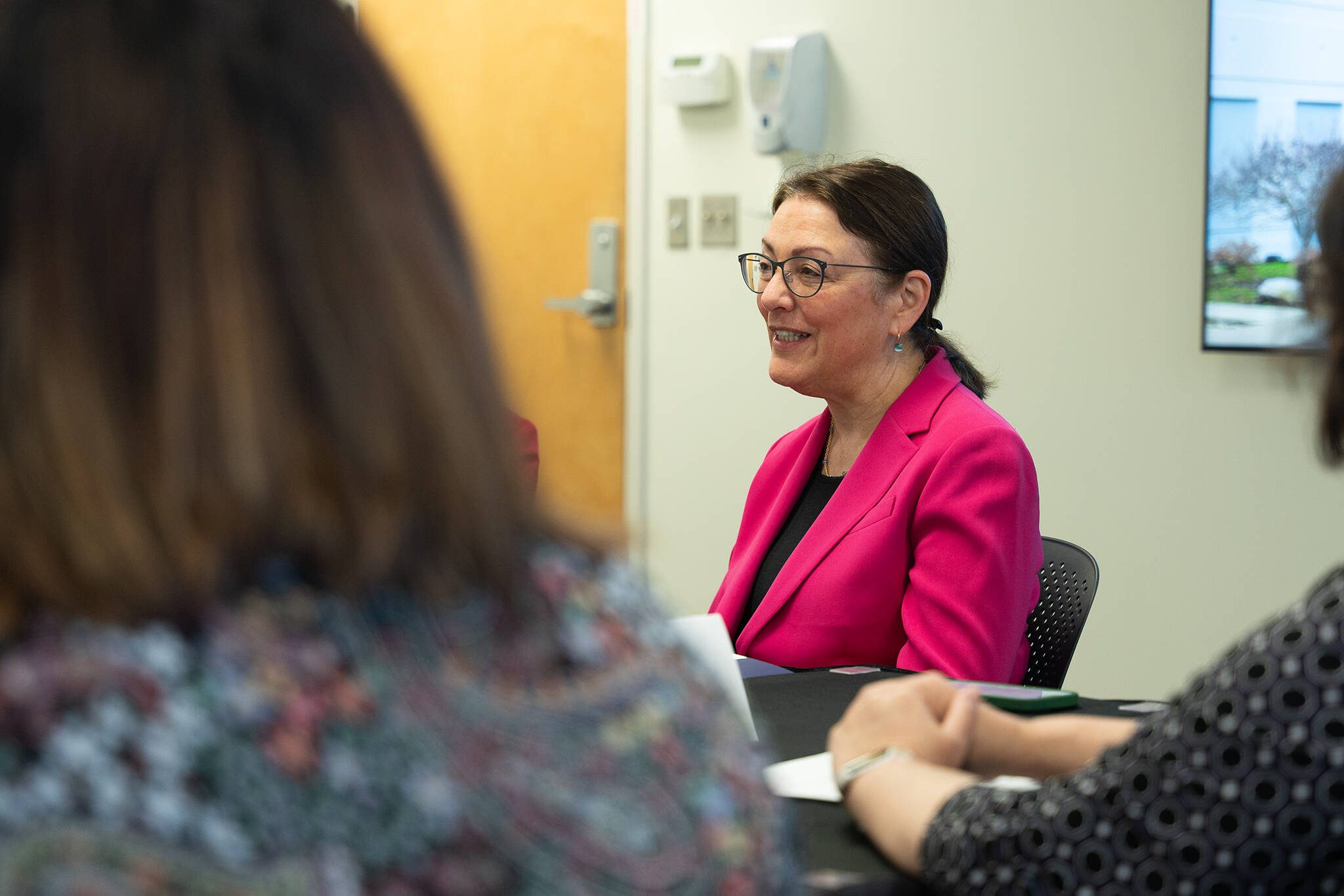MONROE — Amid concerns over potential Medicaid cuts, Congress member Suzan DelBene of Medina hosted a roundtable in Monroe on Thursday, discussing the impacts cuts may have in Snohomish County and nationwide.
A budget resolution passed by the House of Representatives on April 10 called on the Energy and Commerce Committee to cut $880 billion from its budget. That committee oversees $25 trillion in spending, most of which goes to Medicare and Medicaid.
The House budget resolution doesn’t specifically target Medicaid, but it would be nearly impossible to cut that much spending without affecting the program, The New York Times reported.
At the roundtable, health experts and Medicaid recipients said any cuts to the program could have devastating effects on the health of millions of people and drive up insurance costs for those with private coverage.
“Every dollar that goes into Medicaid, you’re probably saving two or three because you’re doing care earlier in a preventative way,” said Stephen Gardner, an emergency medical physician at EvergreenHealth.
Medicaid is a government-funded health insurance program for people with very low incomes. As of November 2024, 71.8 million people across the country were enrolled in Medicaid, just over 20% of the population of the United States.
Polls show a majority of Americans think the government is spending too little on Medicaid, not too much. About 23% of Washington’s population, or 1.8 million people, is covered by Medicaid. As many as 45% of births in Washington are covered by Medicaid, said Charissa Fotinos, the deputy chief medical officer at the Washington State Health Care Association.
“People will die, people will lose their lives,” if cuts to Medicaid are made, Fotinos said.
The cuts might affect more than just those on Medicaid, said Ettore Palazzo, the CEO of EvergreenHealth, at the roundtable. Wait times could increase because of an influx of people using emergency rooms instead of primary care physicians. Insurance premiums could also increase as the commercial insurance industry tries to keep up with increased demand.
“I am incredibly fearful of what this looks like for folks that will be discouraged to try and seek care, emergency or otherwise, because they don’t have the funds or don’t have the coverage for that,” Palazzo said.
For Ali Blake, a single mother whose family is on Medicaid, the service has allowed her and her children to access preventative screenings as well as medications. If she lost Medicaid, Blake said, “we would have nothing.”
“I don’t think people always realize the incredible population that is served by Medicaid all across the country and definitely right here in Washington, and the impact it has,” DelBene said. “I think the point is it’s not isolated. It impacts our entire health care system.”
Will Geschke: 425-339-3443; william.geschke@heraldnet.com; X: @willgeschke.
Talk to us
> Give us your news tips.
> Send us a letter to the editor.
> More Herald contact information.

























